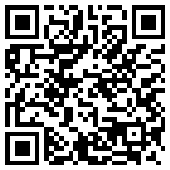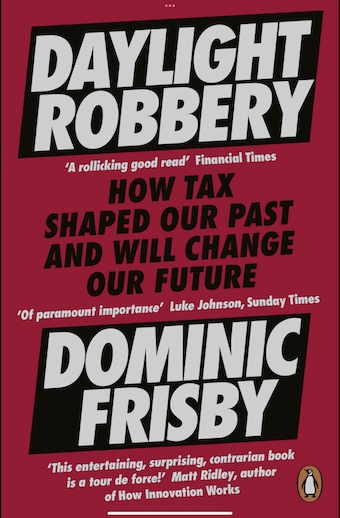“The hardest thing in the world to understand is the income tax.” – Albert Einstein
If Einstein couldn’t understand it, we sure will never get it. Right? Its ludicrous to say the least. Lets dive into the monetary history and taxation. This book is written by Dominic Frisby, a British author and voice actor. It is a comprehensive exploration of the flaws within the modern monetary system and an examination of alternative financial paths for a fairer future. There are historical examples of peculiar taxes that have been imposed in various countries on several durations. You might even question the current rationale of certain taxation practices and its fairness after going through the book.
Lets go through the infamous Window tax which was basically a property tax on the number of windows in the house. We have seen houses with bricked-up windows in films and pictures. The reason why its bricked-up is because of this stupid taxation called window tax, which people avoided by covering up the window hence, the window tax. Its literally a daylight robbery. This tax system was introduced in 18th and 19th century England, France and Ireland. Thus, more number of windows in the house shows the status and class of the wealthy. The rationale behind this tax was to generate revenue for the state, as windows were seen as a sign of wealth and prosperity. However, this tax had unintended consequences, such as encouraging people to brick up their windows to avoid paying tax and open up later when the system is revoked.
This example demonstrates how taxation can be arbitrary, stupid, burdensome, unintelligent, ignorant, brainless, foolish, moronic, absurd and empty-headed. These kinds of tax are disconnected from logical economic principles. Anybody today can say this tax system was insane and crazy but to those living in the era, it was nothing more than a coercive act of the men in power. Lets think about the taxation around us now. Simply think it this way. If you’re paying 20% on tax, you are working 2.5 months of the year for free, if you’re paying 30%, you are working 3.5 months for free. Lets say your working years of career is 40 years. Then you work 8-12 years for free. I’ve taken 20% and 30% as an example but there are those who pay even more. Some say we get roads and highways in return. Similarly, men and women living in the Window tax era might have thought of the bricked-up windows as aesthetic design for their house.
You don’t actually pay taxes- they take taxes. If you pay, it would be voluntary. But its actually coercive act levied by whatever jurisdiction you live.
Lets go through another idiotic example of Beard tax. This was the tax system of the 17th and 18th century Russia, England and France. This was the so called effort by the men in power to modernize the country and to encourage a more western appearance. They even issued the beard token to be carried by the man with beard that the owner has paid beard tax imposed by the government. Think of the height of stupidity of the moronic men in power. These examples serve as an illustration of how taxation can extend into personal choices and individual appearances, reflecting the influence of authorities over societal norms.
There are several other such examples like Hat tax imposed in 18th century England based on the quality and value of the hat. The system became a symbol of social status and those who could afford to pay higher hat taxes demonstrated their wealth and position in society. This was designed simply to raise revenue for the government. Another one is Brick tax imposed in same 18th century England intended to encourage the use of alternative building materials and generate revenue for the government which resulted in a decline in the use of brick as a building material and prompted the development of other materials such as timber. Its funny that those taxes were abolished after decades, some lasting for half a century as it was nothing but the detriment to human civilization and society.
The amazing thing is that in retrospect, people can easily say its absurd but while living the situation, we simply follow what the men in power tells us. At least the history provides valuable insights into the role of taxation and its impact on society. It does not always mean that the government or those in power, works in favor of the people. We can observe whatever is going around us and think for ourselves. Obviously there are few leaders who genuinely think about and act for the benefit of his people. But most of the time, absolute power corrupts absolutely.
These examples of unusual taxes underscore the broader theme in the book, which is to question the fairness and rationale of various taxation practices. Such peculiar taxes, while perhaps historically specific, reflect the broader issue of governments extracting wealth from individuals in unconventional ways. Its critical to analyze the principles and justifications behind taxation and to consider alternative approaches that align with individual freedom and economic prosperity. Taxation has the broader implications and it impacts the way we live and even direct the way society advance.
The book goes through the history of money, central banking and the manipulation of currencies, revealing how these practices have contributed to wealth inequality, financial crises and the erosion of personal liberties.
Gold and silver has been used significantly throughout the human history as reliable stores of value. The rise of central banking and the advent of fiat currency made it possible for government to have control over the money and utilized it as a tool for political and economic manipulation. The inherent flaws in the current monetary system, fractional reserve banking, which perpetuates cycles of debt and financial instability. These system primarily benefits the financial elite while burdening the average person, resulting in widening the wealth gap and diminished economic mobility. There are potential risks and dangers associated with the existing monetary system, including inflation, currency devaluation and the erosion of purchasing power. It is therefore crucial for individuals to diversify their financial holdings, consider alternative investments and protect themselves against the potential pitfalls of traditional fiat currencies. It is important to educate ourselves about money, engage in open discussions and actively participate in shaping the future of finance. By questioning the status quo and exploring alternative financial paths, we can work towards creating a more inclusive, transparent and sustainable monetary system.
There are political and geopolitical implications of the monetary system as control of currencies can influence international relations and shape global power dynamics as we can see recently the sanctions to Russia including freezing hundreds of billions of dollars of Russia’s gold and foreign currency reserves held in Europe and US and also the prohibition of all the transactions related to the management of the regulator’s reserves and assets and transaction with any legal entity or organization. These are the financial warfares and the ways in which countries use economic tools to exert influence and gain advantages in global arena.
There is also huge impact of the current monetary system on individual level in terms of freedom and privacy. The increasing surveillance and control of the private information through various methods including digital forms of money is really concerning and is important to maintain personal sovereignty and protect the privacy in financial transactions. There should be a balanced perspective, acknowledging the complexities and trade-offs inherent in any financial system. We have to approach the topic with an open mind and engage in constructive dialogue to explore solutions that prioritize fairness, stability and individual empowerment.
Criticizing the existing system, author also offers practical insights and actionable steps for individuals seeking to navigate the financial landscape. He has provided guidance on personal financial management and investment strategies empowering reader to make informed decisions and take control of their economic well-being. His well-researched arguments and engaging writing style makes the book interesting to both those who are well-versed in economics and also to those who are new to the subject.
There are concepts of wealth redistribution and insights into the historical and philosophical debates surrounding it. He writes about different economic ideologies, such as socialism and capitalism, and also provides a nuanced perspective on complexities of wealth creation, taxation and the role of the country or state in addressing inequality.
There are alternative forms of currency, such as Bitcoin, cryptocurrencies and blockchain technology. Author highlights the potential of decentralized finance to disrupt the traditional financial system, empowering individuals with greater control over their finances while circumventing traditional banking institutions. There are also challenges and uncertainties surrounding cryptocurrencies, including the issues of scalability, regulation and volatility. However, these emerging technologies offer opportunities for financial empowerment to the individual and a more transparent and decentralized system. Blockchain technology can not only revolutionize finance but also supply chain management and voting systems.
We are in a verge of massive shift in the financial system all around the globe so it would be wise to question the prevailing narrative around monetary system, challenge the conventional wisdom and engage in critical thinking about the nature of wealth, debt and the role of government and financial institutions. Lets work together towards a fairer and more sustainable financial future for all. Lets learn about the emerging technologies and question the existing paradigm and actively contribute to the reshaping of the financial landscape for everyone. We have to strive for a more equitable and resilient financial system that empowers every individual and fosters sustainable economic growth.
Thank you for reading this blog. See you on next one.
I highly recommend Dominic Frisby’s another interesting read. A Sci-Fi Rock Drama, The Shadowpunk Revolution.
You can buy me a coffee if you enjoyed 😉
BTC Address:
bc1q0859dv58ppwcvraq48et98thamkqlm2j24dult



One reply on “Daylight Robbery”
[…] if you pay more taxes. Pretty funny and laughable. You can check more about history of taxes in Daylight Robbery and if you want to know about economics, you can check out The Principles of […]